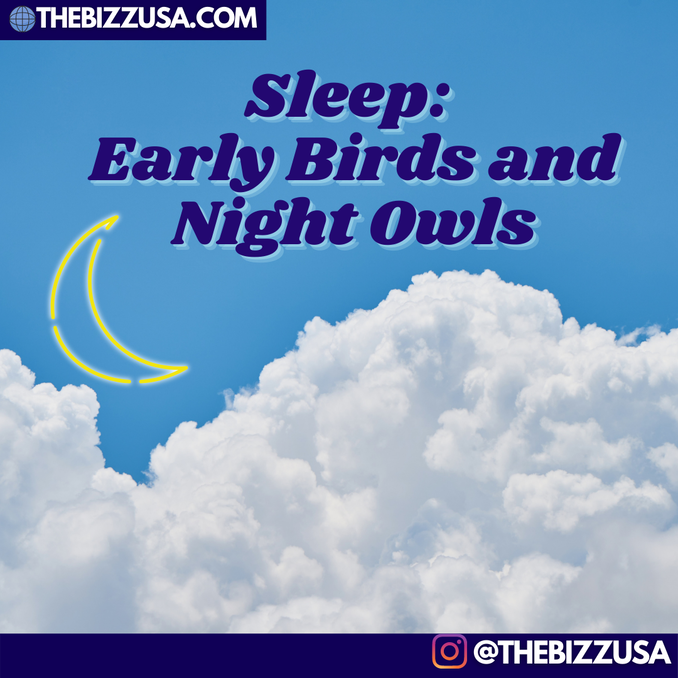|
February 3, 2021 / Source: The Bizz USA By Janet Reddy; Edited by Haarika Kalahasti The early bird gets the worm, but what about night owls? Why do teenagers sleep so much? Many parents cannot fathom why their teenager goes to bed very late and loves sleeping in. The truth is that we have little say in sleep preference as it is almost entirely genetically predetermined. Most teenagers, however, tend to be night owls due to hormonal changes that occur during puberty, but this tends to wane out into your genetic default as you enter adulthood. ”How does this work?” you might ask. Well, according to lead researchers in the field, melatonin, the main hormone involved in sleep, seems to be the main reason for this tendency. This hormone is produced in the brain and works by releasing when your body is in the dark, giving you the signal to fall asleep. In teenagers, this chemical is secreted later at night compared to childhood and even adulthood. Adults generally secrete this hormone at around 10 PM, while a group of teenagers, who were studied in a sleep lab, show that they only began to produce the hormone at 1 AM. Why? During puberty, the brain matures, allowing teens to stay awake for longer. Certain hormones the brain releases during this period of growth also contribute to keeping them up at night. An excellent example of this is cortisol, a stress hormone that gets your body ready to face an immediate threat. Cortisol and melatonin work oppositely of each other. Cortisol suppresses melatonin during the day, and then melatonin suppresses cortisol levels in the evening and at night. But, if cortisol stays high before bed, your body won't be functionally optimizing melatonin. Bright light, whether natural or artificial, also inhibits melatonin secretion. Your internal body clock, also known as circadian rhythm, is a natural internal process that regulates the sleep-wake cycle by responding to light and darkness, which repeats roughly every 24 hours. When your optic nerve senses a dim environment that makes sense to your circadian rhythm, the pineal gland, which is centered in the brain, turns on and begins to actively produce melatonin. Light from TV’s, phones and computer screens can sometimes trick your internal body clock into thinking that it isn't night time yet, so your brain will not actively produce melatonin. Simply put, teenagers can't help but fall asleep late and also wake up late. So let's take a look at the benefits that night owls get to experience:
However, like anything with benefits, there are also negative effects. Some of the risks associated with night owls are:
All in all, being a teenage night owl, is almost indefinitely likely to occur, so there is no need to worry. Rather, use these years to the best of your ability and maximize on the benefits of being a night owl. Just make sure you don't let this become a habit that creeps into adulthood, as there are a few long term risks associated with being a night owl. It's best to wait out the teenage years and let your genetic default kick in.
0 Comments
Leave a Reply. |
Our WritersHaarika Kalahasti Archives
September 2021
Categories |


 RSS Feed
RSS Feed